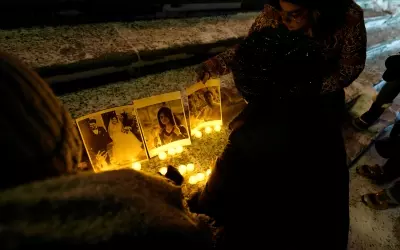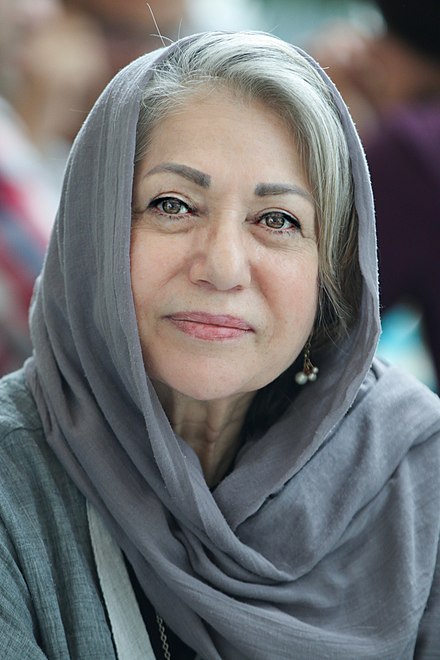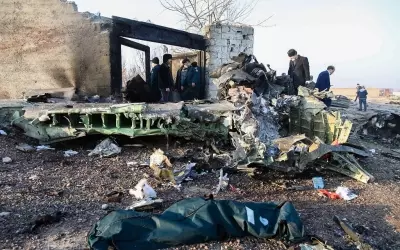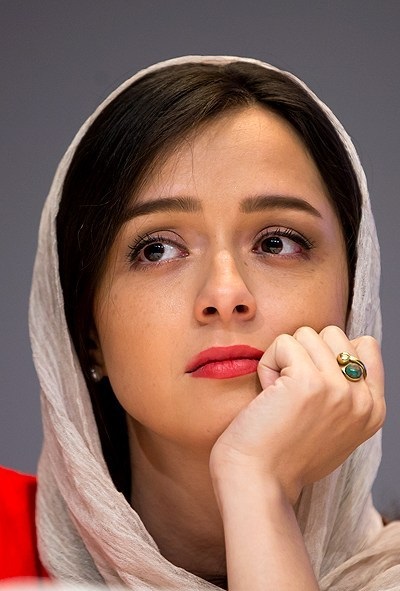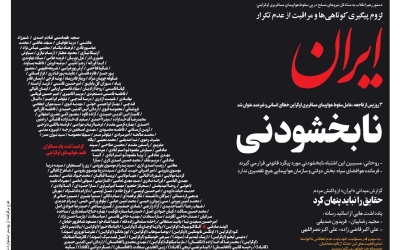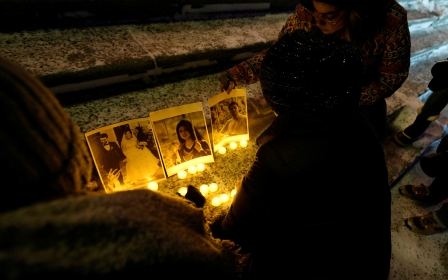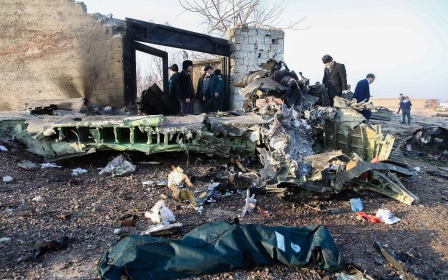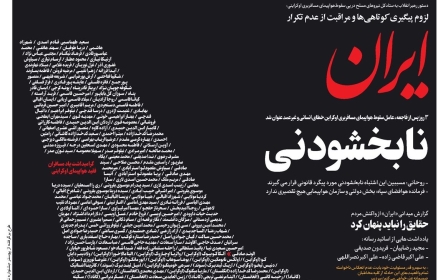'State propaganda': Iranian artists boycott film festival over plane cover-up
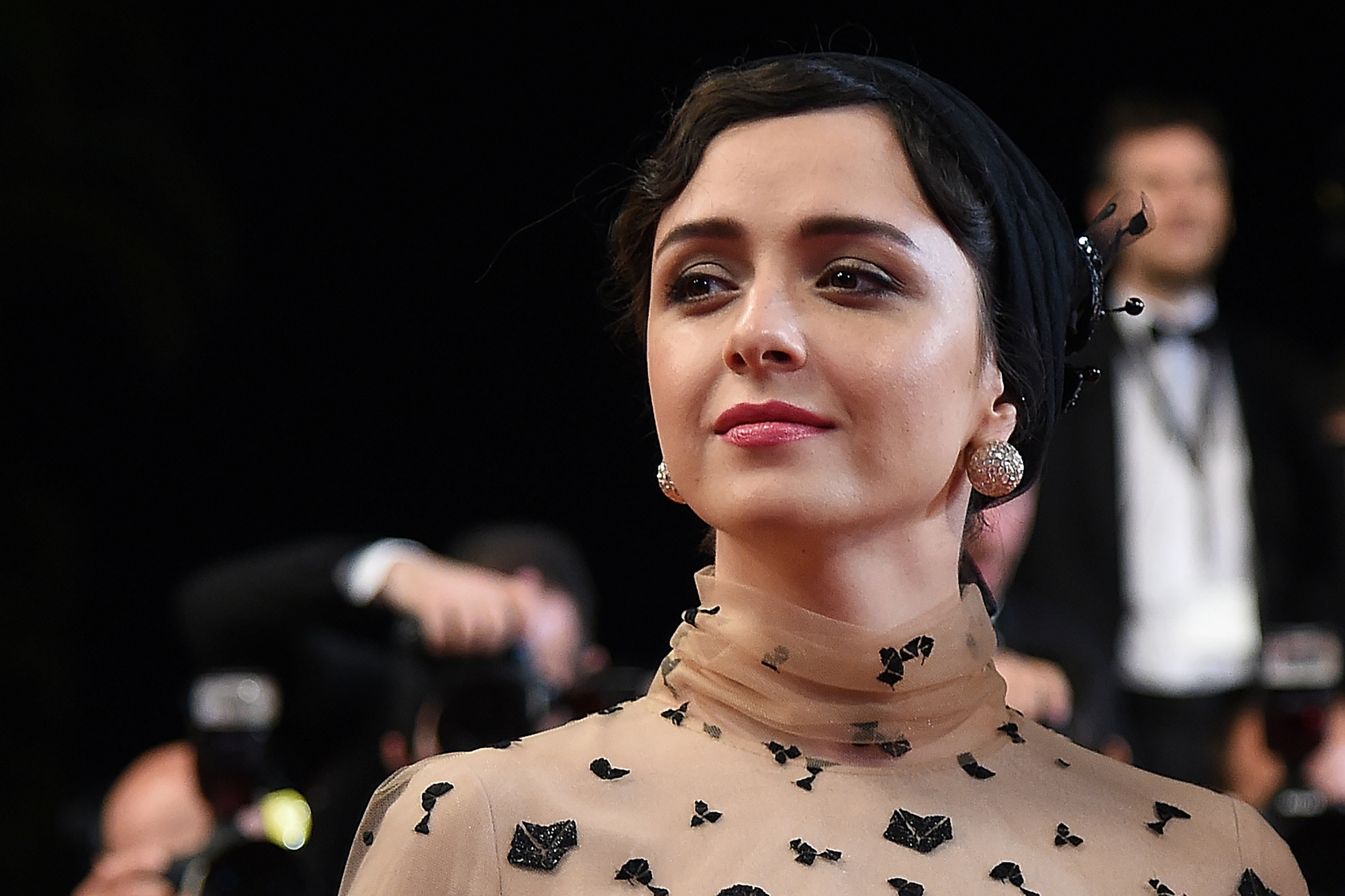
Artists in Iran are boycotting the country’s most prestigious annual film festival over the establishment’s failure for three days to reveal the truth about the downing of a Ukrainian plane by Iranian forces earlier this month.
The Fajr film festival, which begins on Saturday, is held every February on the anniversary of the victory of the country's Islamic revolution in 1979.
The public boycott by several prominent actors and directors is the biggest crisis the festival has faced since its founding in 1982.
While there have been calls in the past for artists to turn their back on the festival owing to some acts of censorship, this year's boycott is on completely different level, with the artists joining the wave of public sympathy for victims of the downing.
The Islamic Republic’s mishandling of the crisis has seen major protests against the government, angered at the death of all 176 passengers and crew, including 82 Iranians.
Amir-Ali Hajizadeh, Iran’s Islamic Revolutionary Guard Corps (IRGC) chief aerospace commander, accepted blame on the 11 January for the accidental downing of the plane, which for three days the government blamed on a “mechanical failure”.
“I wish I was dead and such an incident hadn’t happened,” he told a news conference.
Presidential threat
The accidental downing of the plane on the 8 January came just hours after Iran launched retaliatory missile strikes on US positions in Iraq for the killing of the top Iranian General Qassem Soleimani.
The New York Times reported that Iran's President Hassan Rouhani was kept in the dark over this period regarding what had happened and that it was only his threat of resignation after discovering the truth that forced the establishment to come clean.
Following the IRGC's public confession, acclaimed female director Rakhshan Banietemaad invited people to gather in Tehran's “Freedom Square” to protest against the government.
Although she later deleted her post on the Instagram without explanation, people responded to her's and other appeals to take to the streets.
Reports later emerged that Banietemaad had been detained, but with her continued arrest considered costly for the security apparatus she was released a few hours later.
On 12 January, a day after Hajizadeh's announcement, the legendary film director Masoud Kimiai released a video of himself, voicing his regret over the tragedy.
“I have always stood alongside people. Now, I’m seeing what hard days they are having,” said Kimiai.
“There is no single day that we aren't hearing bad news. Therefore, currently, I don’t like my movie to be screened in the [Fajr] festival, and this is because I want to offer my condolences over [the death of] all those people who were all passengers.”
Not the time to 'hold a celebration'
Kimiai’s video, and his decision to boycott the festival, spread on social media networks, enraging hardliners who tied him with US President Donald Trump.
Vahid Yaminpour, a hardline state TV host and a candidate for parliamentary elections, tweeted on the same day: “In a harmonious action with Trump, an expired man has withdrawn his film from the festival in show of his protest.”
On 15 January, in support of Kimiai’s decision, controversial and respected filmmaker Naser Taghvai, stated: “We can’t [ignore] the political issues and say it's none of our concern.”
Joining the campaign against the festival, Darush Mehrjoi, another eminent director, described people as “sorrowful,” adding that today was not the right time to “hold a celebration”.
Speaking to Middle East Eye on condition of anonymity, a cinematic critic said: “The reaction of Iranian cinema and the artists to the recent events highlights how angry everyone is with the current situation of the country.
"The artists have been portrayed wrongly by the state media as wealthy people living in their mansions in the north of Tehran.
"But this is not right, and they are now proving it to people that they are backing them by withdrawing from a state-run festival in which they could probably get an award.
"This is happening despite all the difficulties they may experience in the repercussions of their decision.”
Not 'citizens' but 'captives'
In support of the campaign, some jury members for various sections of the film awards, including photography and graphics, have resigned.
Meanwhile, the harshest reaction came from Taraneh Alidoosti, a young female superstar, who described her fellow Iranians as not “citizens” but “captives” under the leadership of the Islamic Republic.
In another post on her Instagram account, Alidoosti lashed out at the Fajr film festival, writing: “I’m glad that the [true] nature of this uncinematic and state propaganda have been discovered by my colleagues.”
A few days later, Alidoosti was summoned to Iran’s judiciary, detained, and then freed on bail the same day.
In another strong signal to the artists that their statements and decisions could be costly for them, a theatre producer was also arrested on 19 January following his withdrawal from the Fajr film festival.
However, the various arrests and detentions failed to end the wave of artists opting not to attend.
Peyman Maadi, a famous Iran-based actor who has worked in Hollywood, said: “How can I go to the festival to hold a celebration?
"I’m an actor and my existence is tied to the people of my land, which is mourning the death of its most beautiful children.”
Opposition to boycott
Support for the boycott has not been universal, with a number of artists, including the 2016 Cannes Film Festival Best Actor award-winner Shahab Hosseini opposing the boycott and describing it as “widening the gaps in society”.
However, the emergence of such an unprecedented campaign against the festival resulted in the sudden decision of its officials to cancel the opening ceremony.
“This year's Fajr Film opening ceremony will not be held due to the atmosphere of the society and sympathy with the sad grieving families of the bitter recent events,” announced Ebrahim Daroqezade, the secretary of the festival, on 15 January.
In reaction to the artists’ campaign, one influential hardline MP called for the banning of those determined not to participate in the festival.
On 15 January, Nasrollah Pejmanfar said: “We will submit a bill to the parliament next week in which we ban those artists - who don’t stand alongside people and withdraw from artistic activities - from [doing their job].”
Despite his initial remarks, Pejmanfar later retreated from attempting to pass the act in parliament.
Speaking on condition of anonymity, a reformist journalist based in Tehran told MEE: “This occurrence is alarming for the Islamic Republic.
"Celebrities are highly influential and can bring more people in line with themselves, that is why the establishment is attempting to silence the artists.
“The problem is not Rouhani, he actually seeks reform, the trouble is because of someone else.
"I hope the Islamic Republic leadership submits to reform, otherwise, more protest movements will be seen in the next month.”
This article is available in French on Middle East Eye French edition.
Middle East Eye delivers independent and unrivalled coverage and analysis of the Middle East, North Africa and beyond. To learn more about republishing this content and the associated fees, please fill out this form. More about MEE can be found here.


